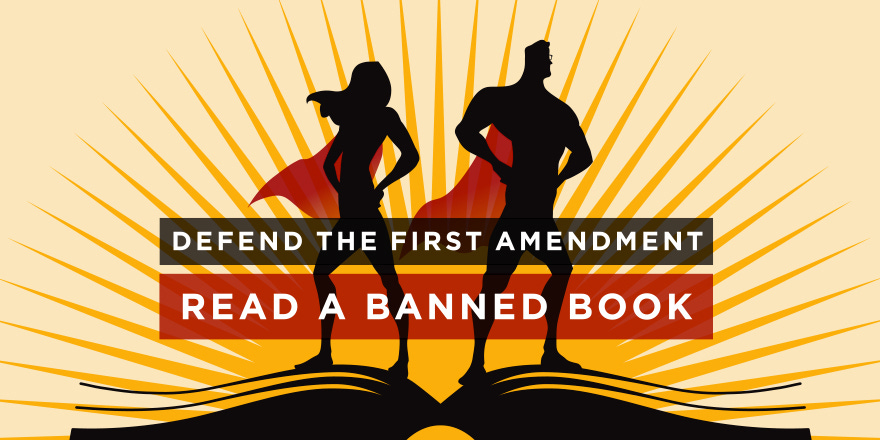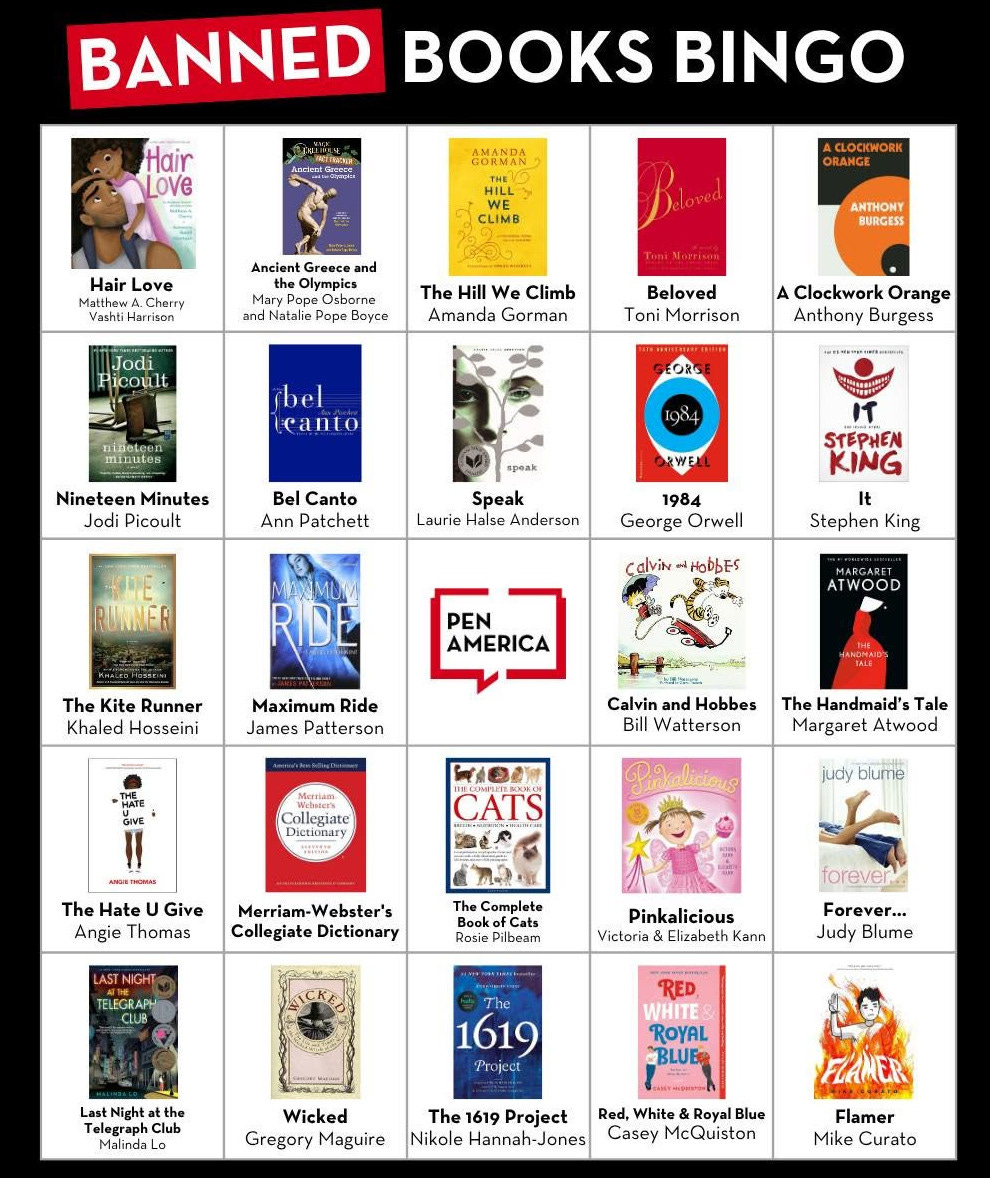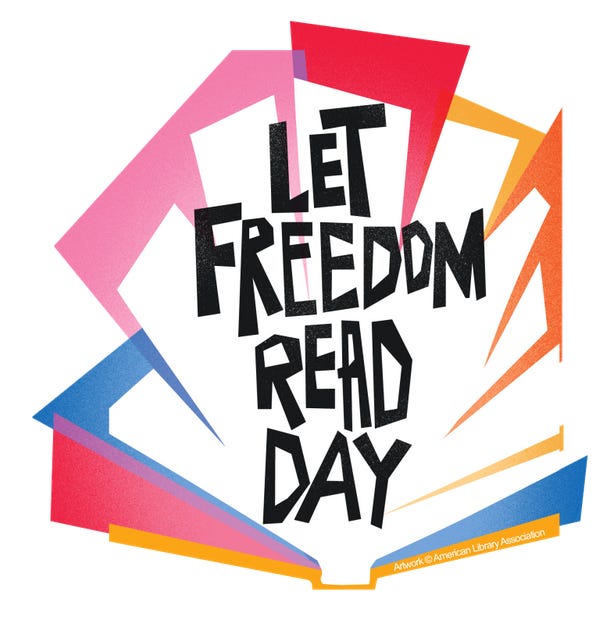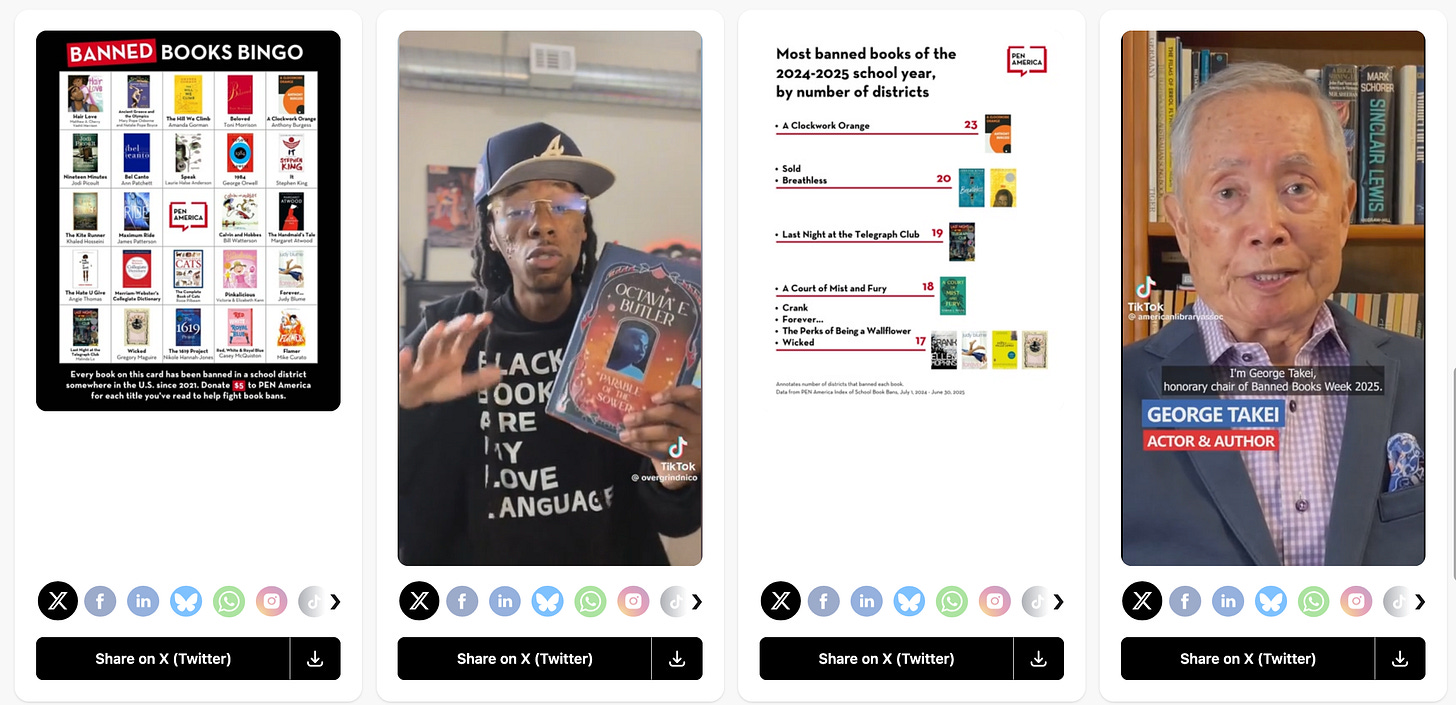Once Upon a Banned Book
When books are banned, freedom is stifled. Let's celebrate knowledge and reading while defending resistance!
Do you care deeply about defending American freedom? Consider becoming a free or paid subscriber!
In this issue:
Read about how banning books is devastating to children, authors, and anyone who loves books!
Watch videos about how to support Banned Book Week.
Share content from our Social Media Toolkit (found here!) to get the message out! Make sure to use the hashtag #BannedBookWeek!
Do you remember that first moment of magic—when a book opened a door to another world? You held it in your small hands, turned the whispering pages, and watched pictures glow like secret windows. You wandered through the library, a quiet cathedral of stories, hunting for the one: a journey to distant galaxies, a talking scarecrow, a paper airplane flying toward the moon. The air smelled of dust and dreams. Some books bore the fingerprints of a hundred eager readers; others waited pristine and new. Each promised escape, wonder, and the chance to find yourself inside its pages.
Now imagine that joy and freedom taken away. Countless children and teens across America already feel that loss.
The Reality of Censorship
Like this video? Share it easily from our toolkit here!
According to PEN America, more than 22,800 books have faced bans in U.S. public schools since 2021. In the 2024–25 school year alone, officials banned 6,870 titles across 23 states and 87 districts. These bans punish creativity and truth, targeting 2,600 artists, including 2,308 authors, 243 illustrators, and 38 translators. These bans operate quietly, permeating local communities.
School boards and extremist groups advocate for vague policies that intimidate teachers and librarians. They don’t ban pornography or inappropriate content; they ban truth—censoring books by authors of color, LGBTQ+ voices, and writers who explore themes of identity, history, and empathy.
What Book Bans Really Do
Like this video? Share it easily from our toolkit here!
Book bans do not protect children; they seek to control them. They limit what young people can know, imagine, and question. Fear drives these actions—fear of compassion, fear of truth, and fear of power born from understanding.
Democracy cannot thrive in silence. It survives only when curious minds and brave hearts challenge authority. Books shape those minds and hearts.
When leaders erase stories, they erase empathy; When they restrict knowledge, they choke freedom.
Resistance Is Reading - Act Now!
Banned Books Week does more than celebrate reading—it defends resistance.
Like this graphic? Share it easily from our toolkit here!
Every story pulled from a shelf reveals what someone fears. Every silenced author warns of what’s to come. Every librarian who stands firm defends the light against censorship’s darkness.
This week, act:
🏛️ Support librarians and demand that your local school board defend access to books. Find ideas for how to do this here!
📖 Buy or donate banned titles; Read them with your children and talk about why they’re being challenged.
ThriftBooks and Better World Books both offer new and used books at low prices - here is their list of banned books you can buy from them!
💳 Donate to organizations that support the freedom to read and write, like:
🖊️ Sign the petition opposing book bans in America.
📣 Participate in Let Freedom Read Day on Saturday, October 11th, using the hashtags #LetFreedomReadDay and #BannedBooksWeek! Learn more information on that event here:
📲 Use toolkits like Unite Against Book Ban’s Action Toolkit or the Social Media Toolkit from Demcast! Make sure to use the hashtag #BannedBookWeek!
When we read freely, we think freely; When we think freely, fear loses its grip.
Hold a banned book in your hands and feel the quiet defiance in each turned page. The stories that shaped us as children can still save us—if we keep them alive.
Read. Resist. Remember.
Because the freedom to read is the freedom to think — and the freedom to think keeps democracy alive.








The tide is turning, keep doing what ever you can to push back while we still have a country we can call land of the free.